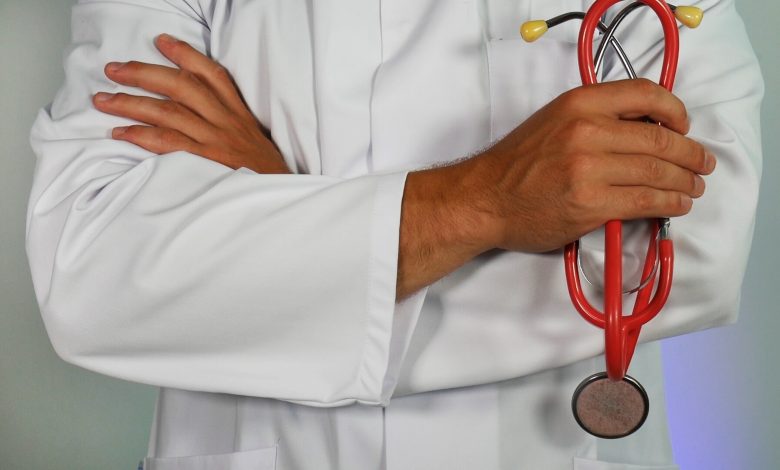
Important Things to Ask Your Doctor Before Starting a Diet
A huge number of aspiring fitness freaks wish to lose weight because they like the way they look with a trimmer waistline and leaner physique. Some people want to feel lighter on their feet since the weight is making it tough for them to carry out their day-to-day tasks too. And yet, others feel the need to lose weight as the extra fat may be giving rise to health problems. No matter what your reason for wanting to shed the pounds weighing you down, one thing that’s for certain is that you desire effective solutions that do not cause you any harm in the long run.
To ensure that both these aspects are taken care of, you need to procure expert advice before you start any weight loss program. Be it an exercise regimen, food control, or any other method that you are attempting, the most important thing to know and understand here is that you must not compromise on your health in any way.
The alarming thing is that there are quite a number of new weight loss diet strategies coming up in recent times that have you leaving out several groups of foods. They might even empower you to cut down on the overall quantity drastically or place drastic restrictions on diet times or intake.
It is essential to know that when you deprive your body of food in any way, you are disrupting your whole system dramatically. Of course, any diet does this, and this is how it changes your body’s dependence on foods that are not healthy.
However, such modifications can wreak havoc in your system if you are not prepared for it or if you’re unaware of your body’s existing vulnerabilities that make the diet you want to follow a high risk for you, although it may be safe for others.
Who better to give you advice on what is right for your health and what’s not than your physician? This is why it’s best to talk to your doctor before starting any kind of diet to know if it suits your body, with its unique needs, strengths, and vulnerabilities.
With your doctor as a partner in your weight loss diet strategy, you are assured that you aren’t doing anything unsafe or unhealthy for your body. This means, in the long run, you lose weight and also gain fitness. That should be the ideal goal of any weight loss diet- to cut down fat without denying your body the nutrition it needs.
When you have been toying with the idea of following a specific diet or wish to know if the kind of routine you are following is good for you, there are some key questions to ask your physician.

What is the ideal weight I should be aiming for?
We all want to have that slim waist and figure, no doubt, but is that healthy for your body? Also, is it a realistic goal at all? Keep in mind that unless you set pragmatic aims, you might turn out terribly demotivated when you keep trying rigorously but don’t get close to the size and weight you are aiming to achieve.
It is imperative to keep your goals within reason in two ways. When you can actually achieve your goals, you’re motivated to stick to the healthy diet that has brought you here, and you keep following the fit lifestyle you have adopted this long. And second, you don’t go into hyper-drive and damage your body in a bid to mimic a center page model whose physiology is nothing like yours.
Check with your doctor on what your realistic weight loss goals should be. In other words, find out from them what your ideal weight should be. To arrive at this, your doctor will use your Body Mass Index (BMI), which uses both your height and weight to determine what your ideal weight should be for your age.
Remember that, even with the same height, your friend in the same age group may have an ideal weight and BMI that is different from yours. This also depends on your current status – if you are heavily overweight now. If so, what you can achieve via a diet may be very different from the friend who has always followed a fit lifestyle, eats healthy, and has maintained a lean physique all their life.
Your doctor will also be able to give you a good idea of what you should be aiming at when you are trying to trim your waistline. Body fat tends to collect around your waist, which is why you get flabby around the middle really quick. Your waistline should be under 40 inches if you are a man and under 35 inches if you are a woman. Any higher and you display abdominal obesity.
Do I have any medical conditions that impair weight loss?
A fundamental inquiry that also tells you how to keep a realistic view of your weight loss strategies, this question is one of the first to ask your doctor. Certain conditions make you put on weight despite a wholesome diet that has a lower fat content.
For example, people suffering from hypothyroidism often find that they put on weight at an alarming rate but cannot bring it down as fast, even with regular exercising and dieting.
Unless you take medications for the condition, it may be impossible for you to see any effect of your weight loss diet, and this could be very depressing for you. Check with your doctor if you have any such conditions that could impair your ability to lose weight.
The other very crucial thing is for you to know if you have any conditions that prevent you from taking on a specific kind of diet. For example, if you suffer from osteoporosis, a regimen that has you avoiding all forms of dairy may be quite detrimental since it would cut down essential calcium from your diet.
Your doctor will be able to warn you of the consequences before you cause damage to your body by adopting this diet. In such a case, he might suggest a different kind of routine that does not affect your calcium intake in any way.
If you do not harbor any known conditions that can affect your weight loss goals or cause you to impair your health by taking on a diet program, you may want your doctor to suggest blood work that can show any potential risks before you start.

Am I on medications that can work at cross purposes with weight loss?
Again, this is a two-pronged question. The first part is if any of the medications that you are on or any treatment methods that you are undergoing, will impair your weight loss. The second is whether the weight loss diet you propose to start will reduce the efficacy of any of your medications.
A simple example would be: if you have a vitamin D deficiency and are taking supplements, then taking enough calcium is absolutely essential. A diet that cuts down calcium intake from various food groups could impair how well the vitamin D gets absorbed in your body.
In particular, people with diabetes should be extra careful when starting diets, as anything that may result in drastic changes in blood sugar levels can inflict a lot of harm to their systems. It is very important for you to know how to manage the diet schedule around your medications so that your body is not suddenly dealing with a sugar rush or a drastic drop in insulin.
Keep in mind that there are certain medications that can hinder your weight loss efforts significantly. If you are on any of these, your doctor can forewarn about the effect so that your expectations are within realistic realms. He can also (if necessary) replace the drugs or tell you about workarounds to enjoy weight loss without compromising on the treatment course.
How will weight loss diets affect me?
This is one of the most crucial questions you should be asking your physician before you start a weight loss diet. Often, people forget that altering their food habits out of nowhere or cutting down their intake of food puts their body under immense strain.
The effect may not be apparent now or ever, but you could be starving your body of nutrients that it is already short of. Your doctor, who has a clear picture of your overall health, can tell you if you are in the right shape to be able to sustain a weight loss diet without prompting impairment to your systems.
Also, he would be able to tell you precisely in what ways a weight loss diet may cause harm so that you know what symptoms to be wary of and when to stop. Your doctor also has the right knowledge about your body to tell you which kind of diet may be dangerous and which may be doable given your physique’s unique needs. Personalized guidance from someone familiar with your health condition is absolutely essential before you start a diet.
There is a positive side to this question too. Your doctor can also enumerate exactly how a weight loss diet can benefit your body and how it can ensure that you eat the right foods and avoid the harmful ones, thus improving your health.
If you often start a diet but find it impossible to stick to, learning from your doctor how the menu can deliver positive results in many ways could be just the motivation you need. For example, if you know that with a specific kind of diet you’re able to reduce the medication you take for blood pressure or chronic gas problems, that would make you doubly keen to sustain the diet.
Do I maintain the right lifestyle to enjoy the benefits of a weight loss diet?
Lifestyle has got a lot to do with weight loss diets, as studies show. You may be diligent about what you eat and what your portion sizes are. You may religiously avoid snacking in between meals, and you may be ensuring that you cut out all carbs. And yet, you may not be seeing the results that you ought to be observing in your body. This could just be the result of a poor lifestyle.
For example, if you are a chronic insomniac who is accustomed to sleeping for just two hours every night, then the lack of sleep could be impairing your ability to lose weight no matter how diligently you follow your diet.
Lack of sleep not only increases hunger and subdues the satiety hormone, but also lowers motivation, so you are less likely to stick to your diet plan. If you consume a lot of alcohol, you tend to bloat, and your weight loss diet will not show much impact on your body at all.
Even if you don’t eat at the right times because you overwork, your weight loss diet may not be productive, no matter how accurately you follow it to the letter.

The fact is that you need to make the right lifestyle changes as well to derive the exact benefits of your weight loss diet. Your primary physician is in the best position to know the most about your lifestyle and also identify accurately where you are going wrong with it.
They will be able to tell you how to change your lifestyle, what to avoid, and what to include (like regular exercise) so that your weight loss diet works as efficiently as it’s designed to. Remember that only by controlling your food or curbing your appetite, you cannot achieve the anticipated returns with a weight loss program.
You need a more comprehensive approach to the problem, and your doctor can guide you here in the best possible way, telling you what to do and what to avoid!



